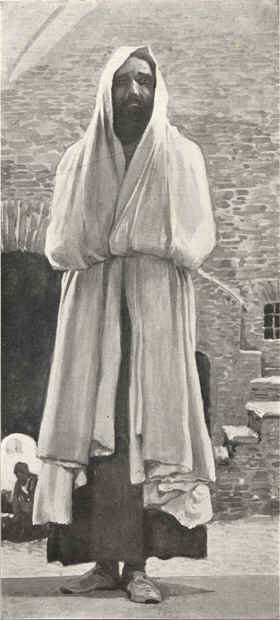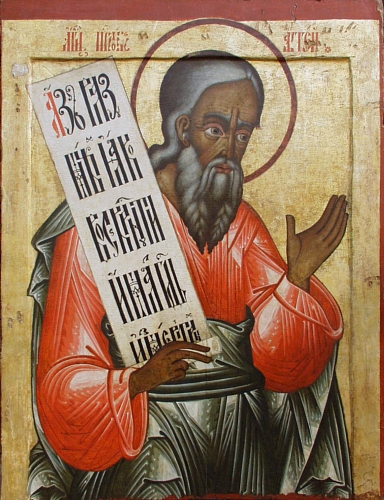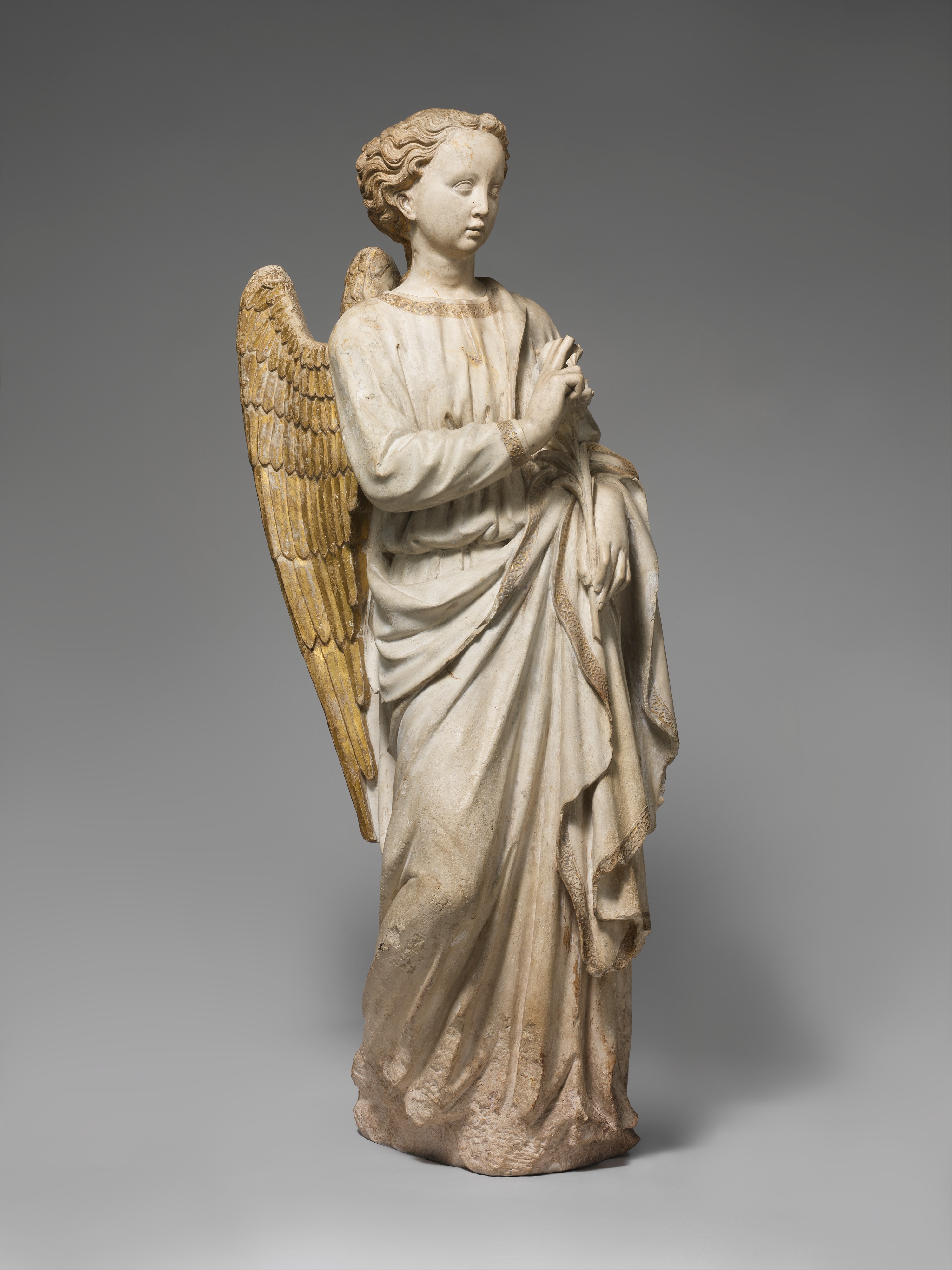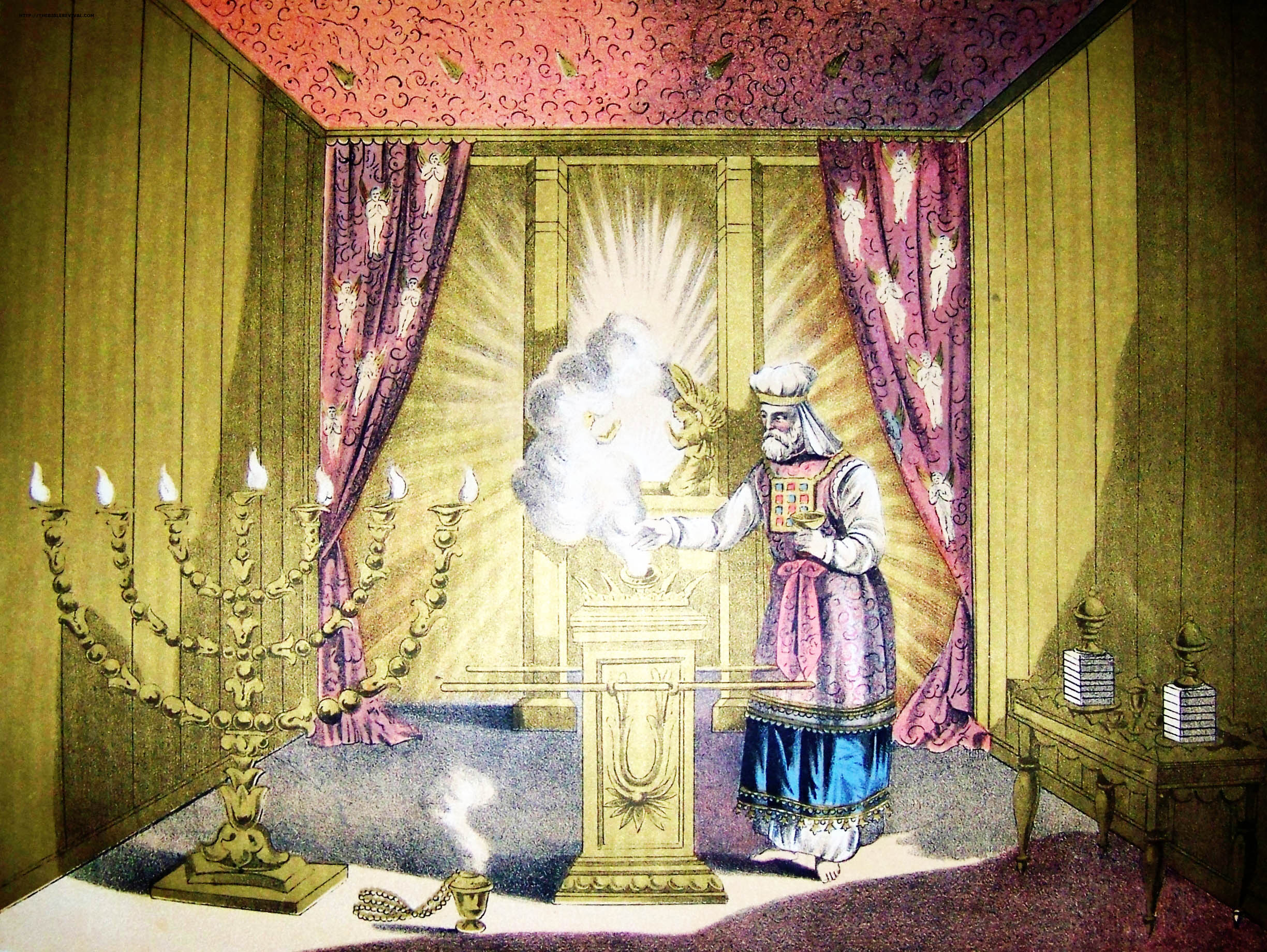|
Daniel In Rabbinic Literature
Allusions in rabbinic literature to the Biblical story of Daniel contain various expansions, elaborations and inferences beyond the text presented in the Book of Daniel. These stories are describing Jewish success in the Diaspora, where it was important to emphasize Jewish wisdom and statecraft during periods of foreign domination in order to strengthen the sense of worth and ethnic pride of the Jewish people. Ancestry According to rabbinical tradition Daniel was of royal descent; and his fate, together with that of his three friends, Hananiah, Mishael, and Azariah, was foretold by the prophet Isaiah to King Hezekiah in these words, "and they shall be eunuchs in the palace of the king of Babylon". According to this view, Daniel and his friends were eunuchs, and were consequently able to prove the groundlessness of charges of immorality brought against them, which had almost caused their death at the hands of the king. It was said of Daniel, "If he were in one scale of the balance ... [...More Info...] [...Related Items...] OR: [Wikipedia] [Google] [Baidu] |
Rabbinic Literature
Rabbinic literature, in its broadest sense, is the entire corpus of works authored by rabbis throughout Jewish history. The term typically refers to literature from the Talmudic era (70–640 CE), as opposed to medieval and modern rabbinic writings. It aligns with the Hebrew term ''Sifrut Chazal'' (), which translates to “literature f oursages” and generally pertains only to the sages (''Chazal'') from the Talmudic period. This more specific sense of "Rabbinic literature"—referring to the Talmud, Midrashim (), and related writings, but hardly ever to later texts—is how the term is generally intended when used in contemporary academic writing. The terms ''mefareshim'' and ''parshanim'' (commentaries and commentators) almost always refer to later, post-Talmudic writers of rabbinic glosses on Biblical and Talmudic texts. Mishnaic literature The Midr'she halakha, Mishnah, and Tosefta (compiled from materials pre-dating the year 200 CE) are the earliest extan ... [...More Info...] [...Related Items...] OR: [Wikipedia] [Google] [Baidu] |
Shir HaShirim Rabbah
Shir ha-Shirim Rabbah (Hebrew: שיר השירים רבה) is an aggadic midrash on Song of Songs, quoted by Rashi under the title "Midrash Shir ha-Shirim". It is also called Aggadat Hazita, from its initial word "Hazita", or Midrash Hazita. Simon Duran, ''Tashbatz'' 3:37 Origins Simon Duran, in quoting this midrash, says that it is a Judean aggadic collection. The sources which it uses directly are from the Jerusalem Talmud. No direct borrowing from the Babylonian Talmud appears, and, although it contains many interpretations and comments found in the Babylonian Talmud, most of them vary greatly in form, the agreement being confined to their contents. This agreement, moreover, may be explained on the ground that the comments and interpretations in question are very old, and were included both in the Babylonian Talmud and in the Palestinian sources used by the redactor of Shir haShirim Rabbah. Theories on composition and dating The date of composition of this midrash cannot b ... [...More Info...] [...Related Items...] OR: [Wikipedia] [Google] [Baidu] |
Genesis Rabba
Genesis Rabbah (, also known as Bereshit Rabbah and abbreviated as GenR) is a religious text from Judaism's classical period, probably written between 300 and 500 CE with some later additions. It is an expository midrash comprising a collection of ancient rabbinical homiletical interpretations of the Book of Genesis, the first book of the Torah, whose authorship in tradition has been attributed to Hoshaiah Rabbah in the period of the Amoraim, flourishing in 3rd century Roman-ruled Syria Palaestina. The midrash forms an aggadic commentary on Genesis, in keeping with the midrashic exegesis of that age. In a continuous sequence, broken only toward the end, the Biblical text is expounded, verse for verse, often word for word. Only genealogic passages and passages that furnish no material for exposition (as the reiterated account of Abraham's servant in 24:35-48) are omitted. Name The name ''Genesis'' or ''Bereshit Rabbah'' for the text is attested in the ''Halakhot Genesis'', ... [...More Info...] [...Related Items...] OR: [Wikipedia] [Google] [Baidu] |
Malachi
Malachi or Malachias (; ) is the name used by the author of the Book of Malachi, the last book of the Nevi'im (Prophets) section of the Hebrew Bible, Tanakh. It is possible that ''Malachi'' is not a proper name, because it means "messenger"; it has been assumed to be a pseudonym. According to Jewish tradition, the real identity of Malachi is Ezra the scribe. Some scholars argue that the Book of Malachi is the result of multiple stages of redaction; most of its text originated in the Persian period, with the oldest stratum from around 500 BCE and redactions into the Hellenistic period. Identity The editors of the 1906 ''Jewish Encyclopedia'' implied that Malachi, also known as Malachias, prophesied after Haggai and Zechariah and speculated that he delivered his prophecies about 420 BC, after the second return of Nehemiah from Persia, or possibly before his return. The Talmud and the Aramaic Targum of Jonathan ben Uzziel, Yonathan ben Uzziel identify Ezra as the same person as ... [...More Info...] [...Related Items...] OR: [Wikipedia] [Google] [Baidu] |
Haggai
Haggai or Aggeus (; – ''Ḥaggay''; ; Koine Greek: Ἀγγαῖος; ) was a Hebrew prophet active during the building of the Second Temple in Jerusalem, one of the twelve minor prophets in the Hebrew Bible, and the author or subject of the Book of Haggai. He is known for his prophecy in 520 BCE, commanding the Jews to rebuild the Temple. He was the first of three post-exilic prophets from the Neo-Babylonian Exile of the House of Judah (with Zechariah, his contemporary, and Malachi, who lived about one hundred years later), who belonged to the period of Jewish history which began after the return from captivity in Babylon. His name means "my holidays". Life Scarcely anything is known of his personal history, with the book of Haggai offering no biographical details about his ancestry or anything else in his life outside the prophecies of 520 BCE. Haggai is only mentioned in one other book of the Bible, the book of Ezra. He may have been one of the captives taken ... [...More Info...] [...Related Items...] OR: [Wikipedia] [Google] [Baidu] |
Midrash Tehillim
Midrash Tehillim (Hebrew: מדרש תהלים), also known as Midrash Psalms or Midrash Shocher Tov, is an aggadic midrash to the Psalms. Midrash Tehillim can be divided into two parts: the first covering Psalms 1–118, the second covering 119–150. The first (and earlier) part has much material dating back to the Talmudic period, although its final composition took place between the 7th and 9th centuries AD. The second part appears to have been compiled in 13th century. It has been known since the 11th century, when it was quoted by Nathan of Rome, by R. Isaac ben Judah ibn Ghayyat, and by Rashi, who quoted it in his commentary on I Samuel 17:49, and on many other passages. Alternative names The midrash has also been referred to as: * Aggadat Tehillim * Haggadat Tehillim * Shocher Tov. This name began to be used in the 12th century. It comes from the verse Proverbs 11:27, "שחר טוב יבקש רצון ודרש רעה תבואנו". In addition, the Hebrew acronym for "Sh ... [...More Info...] [...Related Items...] OR: [Wikipedia] [Google] [Baidu] |
Mincha
Mincha (, ; sometimes spelled Minchah, Minhah, Mincho or Minchuh) is the afternoon prayer service in Judaism. Etymology The name ''Mincha'', meaning "gift" or "offering", is derived from the meal offering that accompanied each sacrifice offered in the Temple (Beit HaMikdash). Origin The Hebrew noun ''minḥah'' () is used 211 times in the Masoretic Text of the Hebrew Bible, with the first uses referring to vegetable and animal offerings brought by Cain and Abel to God. Most other uses refer to a gift offering, made of grain, which could be offered at any time in the day. However, occasionally the Bible uses "mincha" to specifically refer to the afternoon Temple sacrifice. Rabbis in the Talmud debate whether the daily prayers have their origin in the behavior of the biblical Patriarchs, or in the Temple sacrifices. According to the first opinion, the Mincha prayer was originated by Isaac, who "went out to converse in the field", with God. According to the second opinion, the ... [...More Info...] [...Related Items...] OR: [Wikipedia] [Google] [Baidu] |
Angel
An angel is a spiritual (without a physical body), heavenly, or supernatural being, usually humanoid with bird-like wings, often depicted as a messenger or intermediary between God (the transcendent) and humanity (the profane) in various traditions like the Abrahamic religions. Other roles include protectors and guides for humans, such as guardian angels and servants of God. In Western belief-systems the term is often used to distinguish benevolent from malevolent intermediary beings. Emphasizing the distance between God and mankind, revelation-based belief-systems require angels to bridge the gap between the earthly and the transcendent realm. Angels play a lesser role in monistic belief-systems, since the gap is non-existent. However, angelic beings might be conceived as aid to achieve a proper relationship with the divine. Abrahamic religions describe angelic hierarchies, which vary by religion and sect. Some angels have specific names (such as Gabriel or Mich ... [...More Info...] [...Related Items...] OR: [Wikipedia] [Google] [Baidu] |
Habakkuk
Habakkuk or Habacuc is the main figure described in the Book of Habakkuk, the eighth of the Twelve Minor Prophets in the Hebrew Bible. He is traditionally regarded as a prophet active around 612 BCE. Almost all information about Habakkuk is drawn from the book of the Bible bearing his name, with no biographical details provided other than his title, "the prophet". The name “Habakkuk” appears only in Habakkuk 1:1 and 3:1 in the Hebrew Bible, has uncertain etymology, and may derive from an Akkadian word for a fragrant plant or the Hebrew root meaning “embrace.” He is mentioned in the deuterocanonical Additions to Daniel, and outside the Bible, he is mentioned over the centuries in the forms of Christian and Rabbinic tradition. Habakkuk’s tomb is claimed by multiple sites, notably a traditional hillside location in northern Israel near Kadarim and a mausoleum in Tuyserkan, Iran. Habakkuk is commemorated in Christianity with feast days and celebrated through notab ... [...More Info...] [...Related Items...] OR: [Wikipedia] [Google] [Baidu] |
Georgian Psalters MSS, 13-15 Cc
Georgian may refer to: Common meanings * Anything related to, or originating from Georgia (country) **Georgians, an indigenous Caucasian ethnic group **Georgian language, a Kartvelian language spoken by Georgians **Georgian scripts, three scripts used to write the language **Georgian (Unicode block), a Unicode block containing the Mkhedruli and Asomtavruli scripts **Georgian cuisine, cooking styles and dishes with origins in the nation of Georgia and prepared by Georgian people around the world * Someone from Georgia (U.S. state) * Georgian era, a period of British history (1714–1837) **Georgian architecture, the set of architectural styles current between 1714 and 1837 Places *Georgian Bay, a bay of Lake Huron * Georgian Cliff, a cliff on Alexander Island, Antarctica Airlines *Georgian Airways, an airline based in Tbilisi, Georgia *Georgian International Airlines, an airline based in Tbilisi, Georgia *Air Georgian, an airline based in Ontario, Canada * Sky Georgia, an airl ... [...More Info...] [...Related Items...] OR: [Wikipedia] [Google] [Baidu] |
High Priest Of Israel
In Judaism, the High Priest of Israel (, lit. ‘great priest’; Aramaic: ''Kahana Rabba'') was the head of the Israelite priesthood. He played a unique role in the worship conducted in the Tabernacle and later in the Temple in Jerusalem, as well as in some non-ritual matters. Like all priests, he was required to be descended from Aaron (the first biblical priest). But unlike other priests, the high priest followed more restrictive laws, wore unique priestly garments, and was the only priest allowed to perform certain ceremonies. Titles The high priest is referred to by a number of titles in the Hebrew Bible; the title ''kohen gadol'' did not become dominant until well into the Second Temple period. In addition to the title of "great priest" (''kohen gadol'') which later became the standard Hebrew title, the term "head priest" (''kohen harosh''; ) was used, as was "anointed priest" (''kohen mashiach''; )., , The Torah sometimes uses longer descriptions: "the great priest ... [...More Info...] [...Related Items...] OR: [Wikipedia] [Google] [Baidu] |
Avodah Zarah
''Avodah Zarah'' (Hebrew: , or "foreign worship", meaning " idolatry" or "strange service") is the name of a tractate of the Talmud, located in '' Nezikin'', the fourth Order of the Talmud dealing with damages. The main topic of the tractate is laws pertaining to Jews living amongst Gentiles, including regulations about the interaction between Jews and "avodei ha kochavim", which literally interpreted is "Worshipers of the stars", but is most often translated as "idolaters", "pagans", or "heathen." Mishna The tractate consists of five chapters. The number of mishnayot is according to the standard numbering; however, different versions split up the individual mishnayot, or combine them, and the chapter breaks may vary, as well. Chapter One (nine mishnayot) deals with the prohibition of trade with idolaters around their festivals, such as Saturnalia and Kalenda (so as not to be complicit in the festive idolatry) and with the items that are forbidden to be sold to idolat ... [...More Info...] [...Related Items...] OR: [Wikipedia] [Google] [Baidu] |







